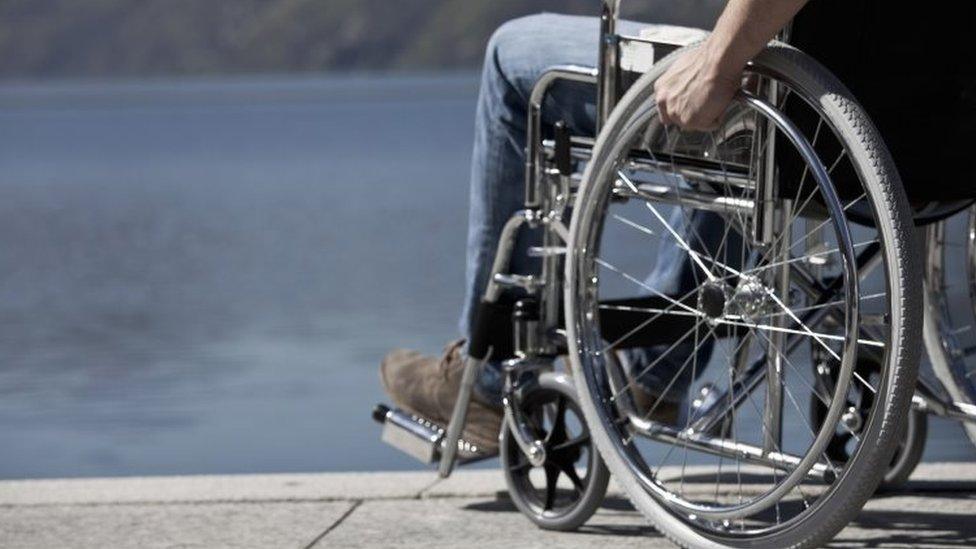Disability hate crimes: Charity staff trained to spot signs
- Published

United Response is now working with police to help people recognise hate crimes
A charity in Leeds is training its staff to help people with disabilities spot the signs of hate crimes.
It comes after police figures show disability hate crimes and incidents have risen by 72% across West Yorkshire from 256 in 2014/15 to 915 in 2017/18.
United Response is now working with police to help people recognise hate crimes and know how to report them.
Kevin Brighton, of West Yorkshire Police, said it was "a hidden and under-reported crime".
Mr Brighton, the force's hate crime co-ordinator, said: "Victims can sometimes lack the confidence in coming forward and reporting this to the authorities. Sometimes they don't realise they have even experienced a hate crime.
More news stories from around Yorkshire
"That's why this resource pack we've helped put together and the training United Response's staff have undertaken is so crucial."
United Response is working with people with physical and learning disabilities, Down's Syndrome and autism.
Jo Silkstone, the charity's learning development manager for Yorkshire, said: "These shocking figures reveal that there are people out there who wish to do harm to some of society's most vulnerable people.
"We must do everything we can to empower those who suffer this type of appalling abuse and discrimination to speak out."

'My son started ripping his clothes with stress and anxiety'
Amanda's son who has Down's Syndrome was a victim of disability hate crime in York.
She said: "Once, I put my recycle bins at the front of the house which one of my neighbours clearly didn't like.
"She started telling my son Alex to move them. She was quite nasty about it to both of us. It quickly spiralled into her entire family giving us both abuse and whenever he was home alone they were intimidating him, openly talking badly about me to upset him.
"Alex started ripping his clothes with the stress and anxiety, something he has done since he was little. I found enough ripped clothes to fill a black sack which was hidden behind his bed. He was losing his independence as he wanted me to be at home all the time for fear of them upsetting him.
"We had to call the police several times and she eventually received a police caution.
"Even after that, I had to contact the police again. This stopped her from doing anything further but her mother and her children continued the harassment. After nearly two years, we decided to move to get away from them."
All names have been changed.

- Published7 November 2016

- Published30 October 2015
